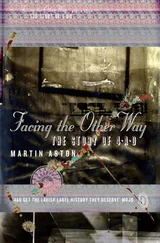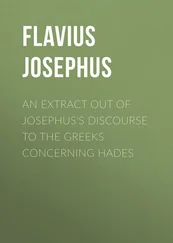A particular tone is used by young men apparently ingenuous to make observations apparently innocent in a manner apparently respectful with the intention of being extremely impertinent: one can hardly hope, in academic life, to be unfamiliar with it. I did not know quite what Lucian meant by these remarks; but I was very sure that it was not what he seemed to mean. From his sister came the sound of laughter imperfectly repressed. I thought that the Fairfax twins did not at all like Rupert Galloway.
It must eventually have occurred to someone in the Nursery that there would be nobody in the Clerks’ Room, at this early hour, to take any notice of the clients’ arrival or to show them where they ought to go. Selena arrived, her apologies silken, and with the assistance of Tancred arranged their distribution among their respective Counsel: Camilla and the Fairfax twins, the consenting adults, to be advised by Cantrip; Dorothea, as guardian ad litem of her younger son, by Ragwort; Rupert Galloway and Tancred himself, the trustees of the Will, by Timothy. Selena’s own client was Jocasta Fiske-Purefoy; but Selena was to be led by Basil Ptarmigan QC, and plainly considered the soothing of formidable dowagers to be a task for leading Counsel. These arrangements made, she remained alone in the waiting-room.
“Hilary,” said Selena, “why are you hiding behind the bookcase? I can see your reflection in the window-pane.”
“My dear Selena,” I said, rising, “I had no intention of concealment. I wished to refresh my memory of the modern form of disentailing deed, and thought you would not object if I consulted your Encyclopædia.”
“It just shows,” said Selena, “how one may be misled by appearances. One might so easily have thought, if one didn’t know better, that you were deliberately eavesdropping on our clients.”
“There were people here, certainly,” I said, “and I suppose they were your clients. Anyone who imagined, however, that their trifling exchanges could have distracted me from my researches would understand little of the mind of the Scholar.”
A telephone call to Julia informed her that the coast was clear — that is to say, that she could now bring Deirdre round to 62 New Square without risk of any embarrassing encounter with the other members of the family. When she arrived, however, she was without her client.
“She doesn’t seem,” said Julia, “to be feeling terribly well. I don’t know why — we only had two bottles of champagne last night. I think your client must have been upsetting her, Selena. Still, I gave her an Alka-Seltzer and told her to sit quietly until she felt better. She doesn’t have to be in Court for the hearing, does she?”
“No, of course not,” said Selena. “None of them do, as long as we have their instructions. But they all seem to be regarding it as the trial of the century, so they might be rather put out if we said they needn’t be there. By the way, Julia, you do realize, don’t you, that Camilla’s father—”
But I did not learn what it was that Julia should realize about Rupert Galloway, for at this moment a further visitor arrived in the waiting-room, inquiring anxiously if he had come to the right place and whether he was in time. It was the Greek boy.
There are Greek boys and Greek boys. There are many Greek boys, no doubt, who are fat and have spots; whose profiles are in no way reminiscent of fifth-century Athens; whose hair has not the blue-blackness of a cluster of ripe grapes; Greek boys, in short, who leave the observer baffled by Homer’s reference to “that most charming age when the beard first begins to grow.” Leonidas Demetriou was one of the others.
“Oh,” said Julia, looking at the Greek boy.
“Oh, dear,” said Selena, looking at Julia.
“Oh,” said Julia again, “you must be Leonidas.” She pronounced the name with the accent on the penultimate syllable, and the “d” as a voiced fricative, like the last phoneme in soothe.
“Oh,” said the boy, with an enchanting smile, “how delightful to find someone who speaks Greek.”
Julia’s knowledge of the modem Greek language is confined, as I happened to know, to a few such essential phrases as “good morning,” “good afternoon,” “where does the bus leave from?” and “what beautiful eyes you have,” supplemented, when this last proves inadequate for its purpose, by various passages learnt by heart from the work of the poet Cavafy; but she uttered no disclaimer.
Upon the other members of the family, when they again gathered in the waiting-room, she bestowed the vaguest of benevolent smiles, and went on gazing at Leonidas with the expression of a six-year-old contemplating a large slice of chocolate cake. During our progress to the Law Courts she continued to make him the sole object of her attention, pointing out to him, as if personally provided by herself for his entertainment, the lawns and historic alleyways of New Square, and burbling inaccurate fragments of the history of Lincoln’s Inn. She let fall from time to time a word or two of Greek, as if it were with difficulty, and only out of courtesy to the rest of us, that she refrained from lapsing entirely into that language. When we arrived at the doors of Court 25, she prevailed on him to assist her in the adjustment of her wig and gown and the restoration to proper symmetry of her collar and white bands. It was all, as Ragwort said afterwards, perfectly disgraceful.
The application itself went smoothly enough, though Camilla, a few feet away from me in the public benches, sat through it looking as pale and tense as if the proceedings were of a criminal nature and she the accused: I reminded myself again how large a proportion of her inheritance was in issue. Rupert Galloway, sitting beside her, seemed to share her nervousness. I saw now that he was less good-looking than, at a distance, I had supposed he might be: a drooping blond moustache failed to conceal the petulance of his mouth, and the slight wateriness of his pale eyes contradicted the authority of an almost Romanesque profile.
“As your Lordship will see,” said Basil Ptarmigan, “we have thought it right to provide in the Arrangement some douceur for the unborn and minor issue of Lalage Robinson and of Mrs. Demetriou. It is a hundred thousand pounds in each case.”
“That seems very generous, Mr. Ptarmigan,” said Mr. Justice Lorimer with approval, “most generous.”
Julia turned her head to smile at Leonidas, as if it had been for his sake, rather than Deirdre’s, that she had negotiated so liberal a provision.
I had found it a morning not without interest; so that when, some three months later, I stood in my room at St. George’s with the telephone in my hand and was asked by Timothy if I remembered the Remington-Fiske application, I was able to answer that indeed I did.
“But who,” I said, “has been murdered?”
“I’m not at all sure that anyone has,” said Timothy. “But the poor girl’s certainly dead, and Julia thinks it’s murder. If you get the next train to London, you can be in the Corkscrew by six-thirty or so, can’t you? We’ll tell you about it then and take you out to dinner.”
He rang off without telling me which poor girl was dead.
The urgency of Timothy’s invitation might have justified a taxi; but I was content, on a gentle May evening, to travel by Underground from Paddington to Charing Cross and from there walk at leisure to my destination, observing the streams of office-workers bound eagerly homewards from Kingsway and High Holborn. It was that season of the year when London is at her most hopeful and adventurous: her citizens go lightly clad, without raincoats or umbrellas; they plant geraniums on the window-sills of gray commercial buildings; they buy strawberries from men at street corners; they talk optimistically of British chances at Wimbledon.
Читать дальше












